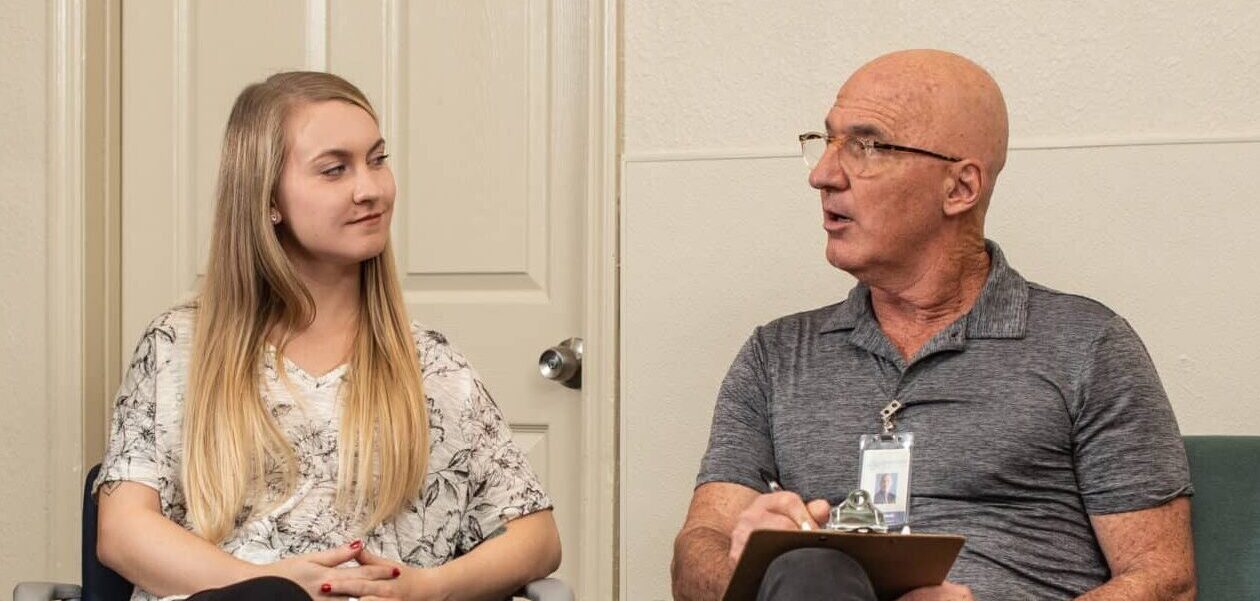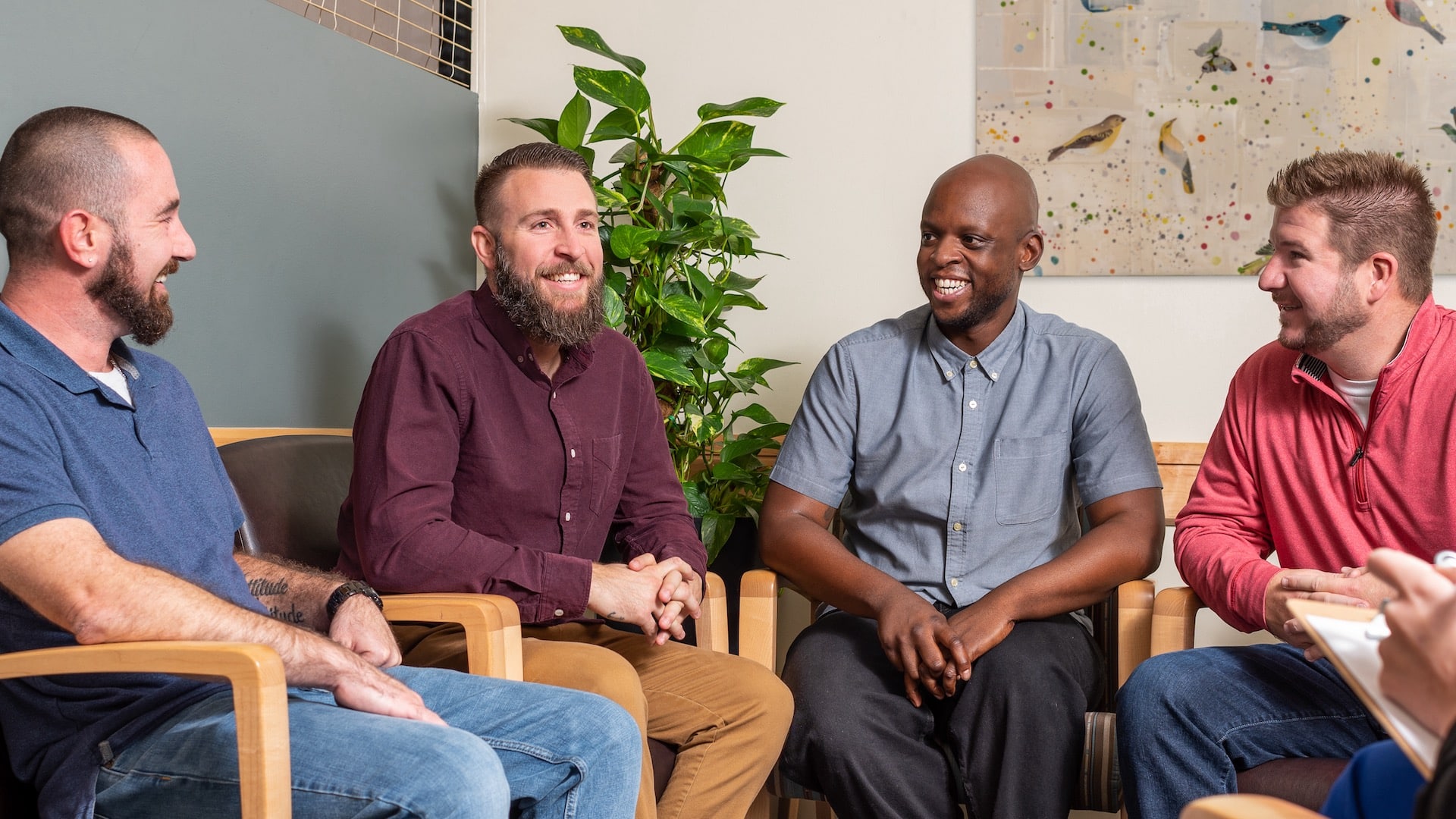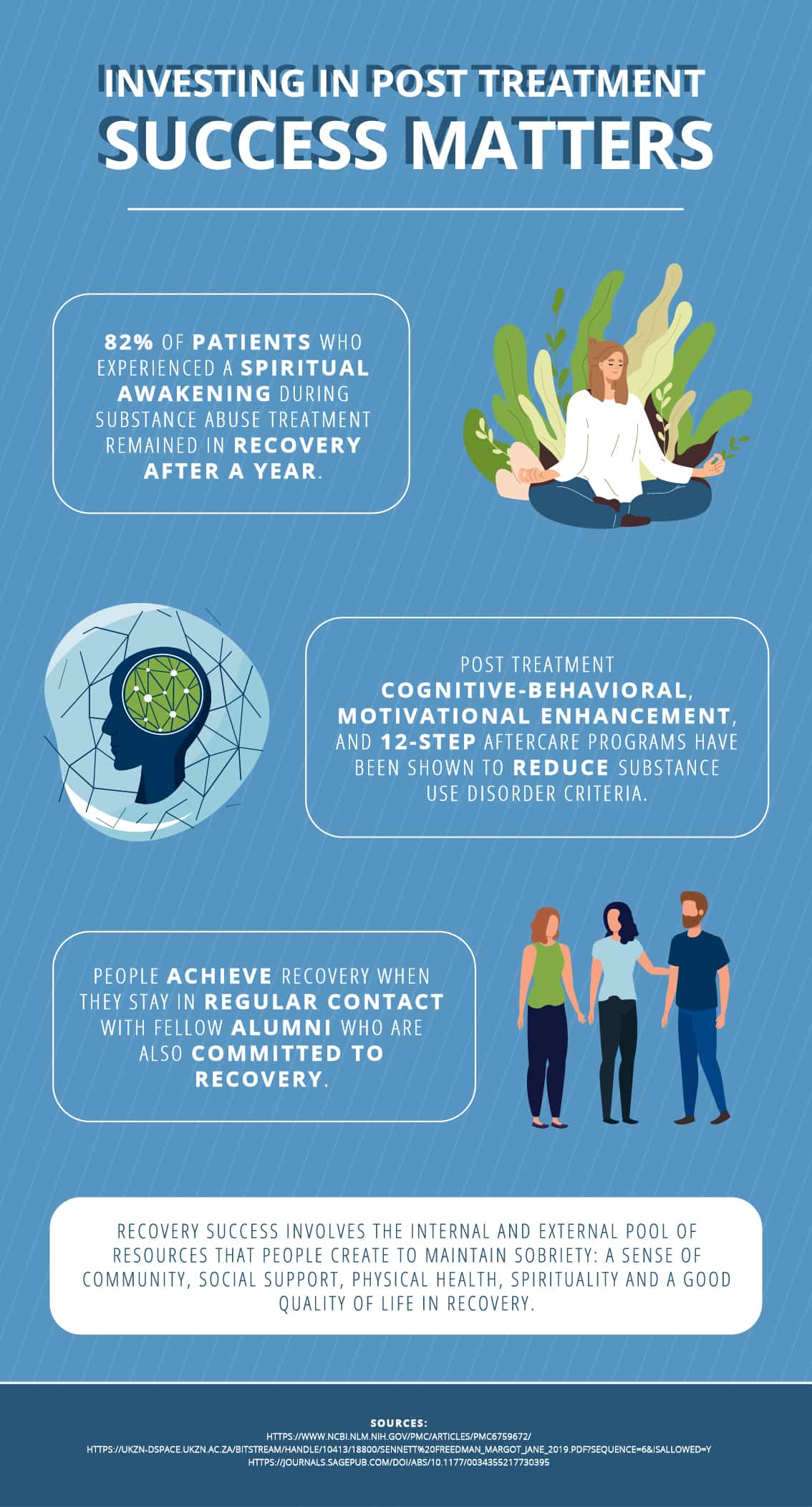Aftercare program
After an individual completes an addiction treatment program, an aftercare program can help them to stay connected and feel supported as they focus on individual growth, community involvement, and commitment to recovery. According to recent data on recovery capital, people who maintain regular contact with others from their treatment program who are committed to recovery are more likely to hold onto their recovery themselves. This is an amazing discovery because, unlike other factors, it is entirely under our control.
From the moment you enter a substance abuse treatment program at Lakeview Health, our aftercare program team begins planning your successful re-entry into the world. Our mission is to help you live a sober and healthy life. Our commitment to you continues long after your time here through our aftercare programs.
We will follow through on this commitment to you through our alumni network that offers continued peer support, group events and certified recovery coaching. When you need fellowship and support, we promise to be here for you. One month, six months, one year, five years—when you reach out for help, we’ll respond and mobilize all available resources to help overcome whatever challenge is in front of you.
Also known as a halfway house, transitional living, or recovery residences, these are usually apartments or houses offering support and establishing a sense of community in early recovery. Houses are usually monitored by house managers or behavioral health techs who administer drug and alcohol tests and ensure that residents follow the rules of the house. Most houses require residents to keep the home clean, abide by a curfew, attend a set amount of 12 step or other support group meetings, and most importantly, remain clean and sober. The goal of sober living is to help the individual learn how to live a healthy life while staying sober. While sober living is not usually covered by insurance, our aftercare coordinators will help find a house that works within the individual’s means.


Individual therapy allows patients to work one-on-one with a therapist. This typically occurs once a week, but many therapists will adjust meeting times to suit the patient’s needs. The primary benefit of this aftercare plan is having a therapist available who focuses specifically on the needs of the individual, which allows maximized outcomes for the encounter. Many therapists work with insurance, or alumni coordinators will work to find one who works best for the individual’s policy.
Partial hospitalization programs and intensive outpatient programs are less intensive than residential addiction treatment programs. These programs, which last for 4-6 weeks, become an option once an individual has completed a residential or inpatient treatment program but may still benefit from the support provided by a structured addiction treatment program. Patients may also attend an outpatient program in conjunction with a sober living home arrangement or living at home. Typically, intensive outpatient consists of one 3-hour group session at least three times a week. In addition, one individual session is completed with a therapist weekly. With programming also comes additional accountability, so patients are screened for drugs and alcohol multiple times a week. When patients become more comfortable navigating their recovery, they transition into a fully outpatient treatment program consisting of a single 3-hour group session and a weekly individual session. They continue to have drug and alcohol screenings throughout this time. Intensive outpatient and outpatient facilities work with insurance providers, while our aftercare coordinators will work to find programs that work best for the patient’s policy.
One of the most dangerous aspects of relapse is that individuals tend to relapse by consuming the same amount of the drug or alcohol that they used prior to detoxing. This is dangerous as the body can no longer tolerate such large quantities of the substance.
A relapse prevention program, like the one offered at Lakeview Health, can help those in recovery from addiction stay safe through sharing knowledge and the skills necessary to identify the early signs of relapse. Additionally, the program will work on changing behaviors to decrease the likelihood of a relapse.
Coming to terms with having a substance use disorder means acknowledging the presence of whatever conditions caused you to start using substances in the first place and healing from those events. This healing takes time and effort. Staying in contact with the people you attended treatment with is less stressful in some ways because they already know your story, and you know theirs.
People with addiction often become secretive, hiding the extent of their problem. It may start small with missing a family event or not calling as often. Things may progress to the point where you realize that you haven’t heard from them in a while. Efforts at getting them to participate in social events may be dismissed. Things can escalate even when you both live in the same household. Your loved one may disappear for days at a time. They may rebuff any efforts at trying to figure out what they’ve been doing with their time.
Why Lakeview?
Recovery when you’re ready
Mental health concerns and substance abuse disorders cause isolation, depression, interpersonal conflicts, and intense feelings of hopelessness. The health and relationship consequences brought on by mental health issues can make the potential for recovery feel unattainable. However, no matter which stage of addiction you are currently experiencing, recovery is always an option. Attending treatment for substance use disorder may seem inconvenient, but the rewards are immeasurable. Any time spent away from your family will be time well-spent. People in active addiction cannot be truly present in the lives of their loved ones.
Relapse prevention
Preventing relapse can save your life or the life of a loved one. This is because, after detox and inpatient treatment, a person’s tolerance to the substance they were previously consuming will have decreased significantly. Using a similar amount of a substance as one once may have before attending treatment is especially dangerous because the body is unaccustomed to coping with the substance’s presence, increasing the chances of an overdose.
Support groups
Support groups are available for almost any situation including Narcotics Anonymous (NA) and Alcoholics Anonymous (AA) as well as groups geared towards issues like grief, trauma, and loss. Our aftercare coordinators will help patients locate a support group that best fits each individual’s needs. Recovery groups provide opportunities for people to connect with others in recovery and expand their networks while continuing to be held accountable. While some people make the mistake of joining support groups before they are really ready to commit to recovery, we recommend attending an inpatient treatment program before attending recovery groups. In recovery, shortcuts tend to fall short; reach out to Lakeview Health if you are ready to take a research-centered and community-based approach to recovery.
Our culture is obsessed with quick fixes, but there is no shortcut to sobriety and no fast track to recovery. At Lakeview Health, we believe that aftercare programs are an important part of maintaining sobriety after completion of one of our Florida addiction treatment programs.

Get the help you need
When you’re ready to begin your road to recovery, turn to our team for the help you need today. Our admissions team is ready to help you determine the type of care you need.

"*" indicates required fields

